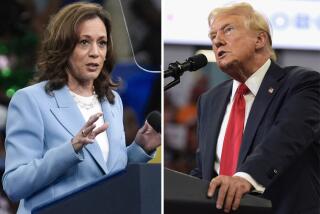Court Rules Against IRS in Tips Case
Restaurants won a battle with the Internal Revenue Service this week when a federal court ruled that the agency cannot use an indirect auditing method--looking at credit card receipts--to force employers to pay back payroll taxes on undeclared tips.
If the ruling stands, it might encourage the IRS to more vigorously pursue waiters and waitresses for tax payments on unreported tip income.
The ruling could, however, eliminate a headache for restaurant executives, who say the practice was unfair.
According to the practice, IRS auditors did not have to interview individual employees when they audited a restaurantâs FICA tax payments. Instead, they used the tip amounts that appeared on the restaurantâs credit card receipts as a basis for estimating total tip income for the staff. If that amount was greater than the restaurant declared, the IRS required the restaurant, not its employees, to pay taxes on the difference.
Waiters and waitresses do underreport tip income, acknowledged Rick Walsh, a senior vice president at Darden Restaurants, which owns the Red Lobster and Olive Garden chains, but, he said, the IRS should scrutinize the workers because itâs difficult for managers to keep tabs on how much their staffs get in cash tips.
The IRS system was âlike this big hammer--that someone comes up and hands you this big bill that you werenât even aware of,â Walsh said.
In its ruling, the Federal Claims Court said Congress never granted the IRS the power to use the employer records system to audit restaurantsâ FICA tax payments. Restaurants say they expect the IRS to challenge the ruling.
More to Read
Inside the business of entertainment
The Wide Shot brings you news, analysis and insights on everything from streaming wars to production â and what it all means for the future.
You may occasionally receive promotional content from the Los Angeles Times.










